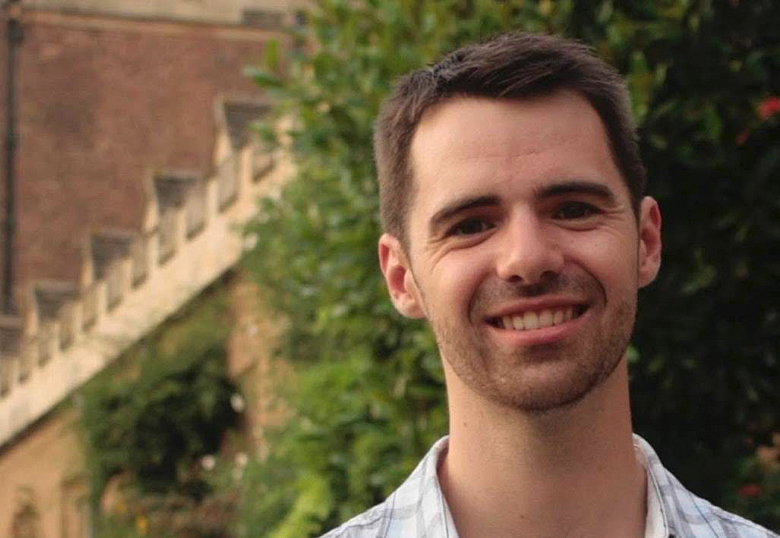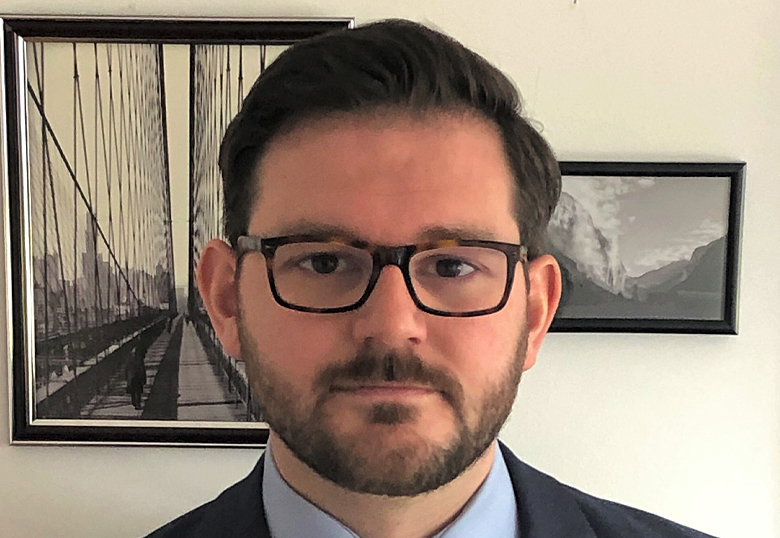Drs. Dylan Johnson (BA ’10) and Matthew Pawlak (BA ’14) never met when they were undergraduates attending the University of Lethbridge. But now, thanks to Dr. Kevin McGeough (BA '96), they’ve connected halfway around the world at the University of Zurich in Switzerland. When McGeough learned they were both at the University of Zurich, he made a virtual introduction. As it turns out, they’re both doing postdoctoral research in the same department, the Theologische Fakultät, but hadn’t met in person due to COVID restrictions.

“I didn't know a lot of humans in Zürich when I moved here in the middle of a pandemic, so when I heard from Kevin that Dylan was in my department, I emailed him immediately,” says Pawlak. “We met a few times already — while following Switzerland's coronavirus rules, of course. I love living abroad, especially getting to use a second language on a daily basis. But at the same time, there's always something refreshing about meeting other Canadians. Whenever I run into another member of the Lethbridge diaspora in Europe there is always reminiscence about our time at U of L, detailed comparison of Albertan breweries, and we always make time to complain about the wind in Lethbridge.”

The reputation of the U of L’s Faculty of Education was a drawing card for both. Pawlak grew up in Red Deer and planned to become a teacher. After a year in education, he took an elective course in biblical Hebrew with McGeough.
“Not only was Kevin’s Hebrew class excellent, it really jumpstarted my interest in language and religious studies,” says Pawlak. “I had never really considered grad school as an option, but after some encouragement from Kevin and input from friends and family, I figured I might enjoy teaching at a university rather than at a high school.”
Johnson was born in Kindersley, Saskatchewan and moved to Lethbridge when he was nine. He declared a combined major in education and history but after a few history classes, he knew he wanted to become a professor. He switched his major to history and soon learned about U of L scholars teaching biblical and ancient Near Eastern studies.
“I met Kevin in his course on ancient history,” says Johnson. “His course was great, but what cemented my decision to pursue graduate work in biblical and Near Eastern studies was the archaeological field school run by Dr. Shawn Bubel at Tel Beth Shemesh in Israel. This was the defining moment in my life and career, when I knew I wanted to understand the history and culture of the people who once occupied Israel and the surrounding regions."
Their paths diverged after they completed their undergraduate studies. Johnson was admitted into the Old Testament/Hebrew Bible program at Harvard Divinity School.
“Though not widely known, the U of L has a lengthy reputation for sending students to study Hebrew Bible at Harvard — including Kevin and myself,” says Johnson.
After completing a master’s in 2012, Johnson pursued a PhD at New York University. During that time, he spent a year at the Institute of Legal History at the University of Paris. After completing his doctorate in 2018, he taught Archaeology 1000 at the U of L. He was set to begin a one-year adjunct position at the University of British Columbia when he received an email from a professor at the University of Zurich recruiting him to join a research team exploring lawgiving in the Bible and the ancient Near East. He and his wife moved to Switzerland last January.
Pawlak, after teaching himself ancient Greek, switched from Hebrew Bible to early Christianity and secured a funded spot in a master’s program at McMaster University in Hamilton, Ontario. He developed an interest in the intersection of humour and religion and focused his master’s thesis on the use of sarcasm in one book of the New Testament. That became the launching point for his doctoral work at the University of Cambridge in the United Kingdom.
“The years in Cambridge were amazing; I often describe it as a bit like living in a Harry Potter book — except a lot more people speak Latin,” says Pawlak. “There were several other Canadians at my college in Cambridge, including others with U of L or Lethbridge connections. As a result, in a small corner of the UK, there was an international graduate community that —when you asked them what they knew about Canada — would mention Toronto, Vancouver but could also give you a detailed account of Lethbridge and the geography of southern Alberta.”
Pawlak’s postdoctoral position has him splitting his time between Zurich and Tübingen, Germany. He arrived in Zurich last October and will be there for 10 more months. His research involves exploring the connections between physical and verbal violence in the ancient world and how mockery functions as a tactic to dehumanize victims in torture situations.
In addition to their shared backgrounds, anyone eavesdropping on one of their conversations might hear them speak in English, German or French or see them reading texts in Hebrew, Greek, Latin, Aramaic and other ancient languages.
